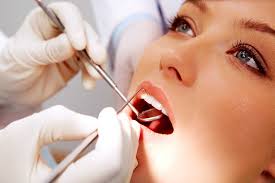Routine dental check-ups are a part of maintaining oral health. They help identify potential issues early and protect your teeth over time. Many people associate these visits solely with cleanings, but they offer much more. Understanding what happens during a dental check-up, how it benefits oral health, and when you should schedule a visit to your dentist are all helpful parts of keeping your teeth clean and healthy.
What Happens at a Dental Check-Up?
Dental check-ups generally include two main parts: an examination and cleaning. During the examination, your dentist reviews your medical history and asks questions about any concerns or changes in your oral health. They also inspect your teeth, gums, and mouth for signs of decay, gum disease, or other potential issues. Dental X-rays may be taken when more detailed images are needed.
After the examination, a dental hygienist often performs a professional cleaning. They remove plaque and tartar buildup from your teeth, focusing particularly on hard-to-reach areas. They also polish your teeth to smooth the surface, making it harder for plaque to stick to them. At the end of the visit, your dentist often provides advice tailored to your oral health needs. Each step of the process is designed to help keep your teeth and gums healthy while addressing existing problems early.
How Do They Promote Healthy Teeth?
Regular dental check-ups play a fundamental role in preventing oral health problems. Early detection of cavities, gum disease, and other complications is one key benefit. Addressing issues early prevents them from becoming more severe, reducing the likelihood of pain or costly treatments in the future.
Professional cleanings during dental visits also contribute to oral health by removing plaque and tartar buildup. Daily brushing and flossing are necessary, but they aren’t always enough to remove hardened tartar. Over time, this buildup can lead to gum disease or tooth decay if left untreated.
Dental check-ups also allow dentists to provide personalized care recommendations. Advice on proper brushing techniques, flossing habits, or dietary choices can improve your oral hygiene routine. These recommendations are tailored to your specific needs, helping you maintain healthy teeth over the long term.
When Should I See a Dentist?
Dentists often recommend scheduling check-ups every six months, though your specific needs may vary. Some people may require more frequent visits due to certain conditions or risk factors. Follow the timeline suggested by your dental professional.
Outside of regular check-ups, there are certain signs that indicate you should visit your dentist sooner. Persistent tooth pain, swollen gums, or sensitivity to hot or cold temperatures often warrant a professional examination. If you notice changes in your mouth, such as sores that don’t heal or unusual spots, it’s a good idea to book an appointment. Routine appointments and timely visits help maintain strong, healthy teeth and prevent minor issues from escalating into more significant concerns.
Support Your Oral Health
Regular dental check-ups are a key component in maintaining a healthy smile. They help identify and address potential problems early, while professional cleanings support everyday oral care. By maintaining a consistent check-up schedule and seeking professional help when needed, you can preserve your dental health for years to come. Schedule your next visit today to take the first step toward healthier teeth and gums. Your oral health is in good hands with an experienced dental team.

Leave a Reply